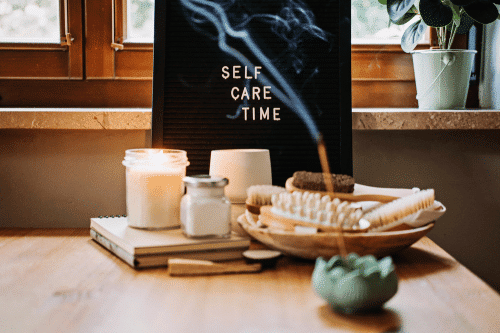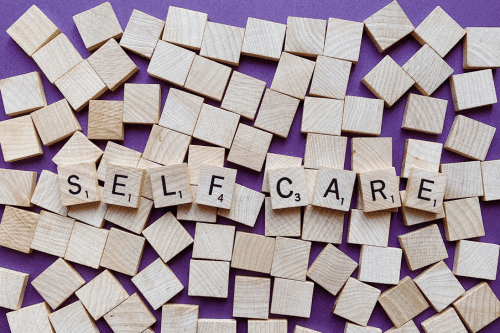Self Harm Quotes: Finding Strength and Support in Difficult Times
Understanding Self-Harm
Definition of Self-Harm
Self-harm refers to the intentional act of causing physical pain or injury to oneself as a way to cope with mental pain or emotional pain. It is a self-sabotaging habit often linked to mental health disorders, such as depression, anxiety, or borderline personality disorder. Many people turn to alternative self-harm behaviours like cutting, burning, or hitting themselves to deal with distressing emotions.
Common Reasons for Self-Harm
Self-harm can stem from various emotional struggles, including:
- Having low self-esteem or body image worries
- Unresolved trauma, including experiences of abuse (emotional or physical)
- Stress from daily life or challenging times
- Feelings of loneliness or a lack of sense of community
- Struggles with mental illness, alcohol abuse, or substance abuse
- The need for control in difficult situations
While self-harm may seem like an escape, it does not bring true relief or the absence of pain. Instead, it creates a cycle of pain that can make life even harder.
The Importance of Seeking Help
Self-harm is often a sign of underlying mental health issues that require proper treatment. Seeking mental health services can provide a safe space for healing. Professional support, whether through Child and Adolescent Mental Health Services, inpatient care, or outpatient therapy, helps individuals work through their emotions in healthier ways.
Recognizing the Signs of Self-Harm

Signs to Look For
Recognizing self-harm in oneself or others can be crucial in offering support. Signs include:
- Unexplained injuries such as cuts, burns, or bruises
- Wearing long sleeves or pants even in warm weather
- Isolation from friends, family, or a sense of community
- Frequent emotional outbursts or angry behaviour
Benefits of Professional Support
A health professional can help individuals break the pattern of self-harm by providing alternative behaviours and effective suggestions for managing distress. Crisis situations require immediate intervention, whether through mental health treatment, a lifeline in times of distress, or hospitalization for life in danger scenarios.
Coping Strategies for Self-Harm
Developing Healthy Alternatives
Replacing self-harm with healthier habits can make a difference in everyday lives. Consider:
- Retail therapy in moderation to uplift mood
- Expressing emotions through creative therapy, such as music, painting, or writing
- Practicing behaviour therapy or behavioural therapy to address triggers
- Engaging in care activities like exercise, meditation, or deep breathing
The Role of Self-Compassion
Self-harm often stems from self-criticism. Practicing self-harm suggestion techniques like self-acceptance and positive affirmations can help in difficult moments. A family friend or care team can also offer guidance during family discussions about self-harm recovery.
Quotes for Inspiration and Hope
Uplifting Quotes from Famous Figures
Reading self-harm quotes, impactful quotes, and inspirational quotes can offer comfort. Here are some impactful suicide prevention quotes and words of encouragement from famous people:
- “You are not alone, even in your darkest moments.” – Unknown
- “Healing takes time, but you deserve it.” – Unknown
- “The bravest thing I ever did was continuing my life when I wanted to die.” – Juliette Lewis
- “Even the darkest night will end, and the sun will rise.” – Victor Hugo
Personal Stories That Resonate
Stories from community among survivors remind individuals that recovery is possible. Many have shared their journeys on social media platforms, in support groups, or on websites like Childline or The Mix. These platforms provide a lifeline in times of need.
Addressing Relapses

Understanding Triggers
Triggers like pent-up emotions, stress, or unresolved trauma can lead to relapse. Identifying these triggers helps in breaking the cycle of pain.
Steps to Take After a Relapse
If relapse occurs, remember:
- Do not judge yourself—it is a setback, not a failure.
- Seek support from a mental health professional or crisis hotline.
- Engage in alternative self-harm behaviours, such as journaling or calling a friend.
- Reevaluate coping strategies and take a positive step toward recovery.
Supporting Loved Ones
How to Approach a Friend or Family Member
Supporting someone who self-harms requires patience and empathy. Crucial conversations should be approached with care, avoiding bizarre conversations or blame. Instead:
- Offer a safe space to talk.
- Encourage mental health treatment options like cognitive-behavioral therapy or interpersonal therapy.
- Remind them that they are beautiful people who deserve kindness and healing.
Creating a Supportive Environment
A sense of community helps individuals struggling with self-harm. Small acts like checking in, validating their feelings, and respecting their boundaries create a more supportive atmosphere.
The Role of Treatment Options
Therapy and Counseling
Cognitive-behavioral therapy, interpersonal therapy, and behaviour therapy are effective in addressing the root causes of self-harm. Therapy provides a structured way to develop alternative behaviours and long-term solutions.
Medication as an Option
In some cases, medication may help treat underlying mental health challenges like depression or anxiety. A health professional can determine if medication should be part of a treatment plan.
Building a Community of Support
Online Resources and Support Groups
Many individuals find comfort in online communities where they can share their experiences and gain support. Social media platforms, mental health forums, and organizations like Childline or The Mix offer helpful resources.
Engaging in Supportive Activities
Joining group therapy, volunteering, or participating in hobbies can improve mental health and provide distraction from distressing thoughts. Some activities include:
- Engaging in care activities such as meditation or yoga
- Writing a list of quotes that inspire hope
- Following favorite quotes or affirmations for daily encouragement
Final Thoughts
Self-harm is a sign of deep emotional distress, but healing is possible with the right support. Mental health services provide individuals with a safe space to work through mental health challenges and develop alternative behaviours. Whether through impactful quotes, therapy, or a strong sense of community, everyone deserves the chance to heal and move toward a healthier future.
Frequently Asked Question's
Self-harm is often a coping mechanism for mental pain and emotional pain. People may engage in self-harm due to mental health challenges, having low self-esteem or body image worries, pent-up emotions, or experiences of abuse. It can provide a temporary sense of control or relief but does not address the underlying causes of distress. Seeking mental health services, including cognitive-behavioral therapy or interpersonal therapy, can help individuals develop alternative behaviours that are healthier and more sustainable.
If you suspect a friend or loved one is self-harming, approach them with care and without judgment. Create a safe space for them to express their feelings and reassure them that they are not alone. Encourage them to seek mental health treatment from a health professional. Avoid bizarre conversations that could make them feel alienated, and instead, focus on crucial conversations that promote healing. Suggest alternative self-harm behaviours, such as journaling or engaging in creative therapy, and remind them that there are resources like Childline or The Mix that provide additional support.
There are many alternative behaviours that can replace self-harm and provide relief from distress. Some options include:
- Creative therapy, such as painting, writing, or music
- Physical activity like yoga, running, or stretching
- Practicing mindfulness or meditation to manage difficult emotions
- Talking to a friend, therapist, or joining a sense of community in support groups
- Engaging in care activities such as deep breathing or relaxation techniques
Developing healthier habits takes time, but replacing self-harm with positive coping strategies is a positive step toward healing.
A relapse does not mean failure—it is a setback that can be overcome. If you relapse, take the following exact steps:
- Acknowledge the relapse without self-judgment.
- Reach out to a support system, whether it be a family friend, therapist, or crisis hotline.
- Identify triggers that led to the relapse and develop an action plan to handle similar crisis situations in the future.
- Engage in healthier coping mechanisms, such as alternative self-harm behaviours or behaviour therapy.
Recovery is a journey that takes time, and every effort toward healing is a step forward. If you are struggling, remember that you are not alone, and there are mental health services available to help.




